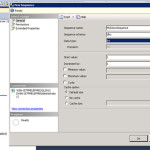Solid state hard drives or SSD's as they are also known are the latest generation of hard disk storage. They are far superior to traditional hard disk drives because of the absence of moving parts and so are blisteringly faster in comparison. Due to the architecture of the platter based hard disk, it is much slower than other parts of the server and can typically be the … [Read more...] about Will solid state hard drives negate the need to performance tune your database server?
10 simple tips on improving query and server performance
The following tips do not promise that your database server will magically become blisteringly fast and go like a Ferrari but they are important things to bear in mind and relatively simple to implement either when building your database or if you have an existing performance problem and are looking for ways in which to make your database run faster. 1/ SELECT * FROM The rest … [Read more...] about 10 simple tips on improving query and server performance
New T-SQL features in SQL Server 2012 – CREATE SEQUENCE
Continuing on from new T-SQL features of SQL Server 2012, I wanted to explain about the new CREATE SEQUENCE feature. What is CREATE SEQUENCE for? A common feature in table design is to place an auto incrementing number on a field in the form of an IDENTITY column. So this is an easy way of maintaining a sequential number on a table. What if you wanted to create a database … [Read more...] about New T-SQL features in SQL Server 2012 – CREATE SEQUENCE
New T-SQL features in SQL Server 2012 – Conversion Functions
SQL Server 2012 ("Denali") is nearly here and with all new releases, there are always new features to know about. I am very interested to find out more about the product and my next few posts will talk about some of the new T-SQL features of SQL Server 2012. This first post will cover the new conversion functions in SQL Server 2012. I am using the latest download from … [Read more...] about New T-SQL features in SQL Server 2012 – Conversion Functions
What are the differences between primary keys and unique indexes in SQL Server ?
I was recently asked, what are the differences between primary keys and unique indexes? Well, they are very similar but here are the differences. Only one primary key is allowed on a table but multiple unique indexes can be added up to the maximum allowed number of indexes for the table (SQL Server = 250 (1 x clustered, 249 x non clustered) and SQL 2008 and SQL 2012 = 1000 … [Read more...] about What are the differences between primary keys and unique indexes in SQL Server ?


